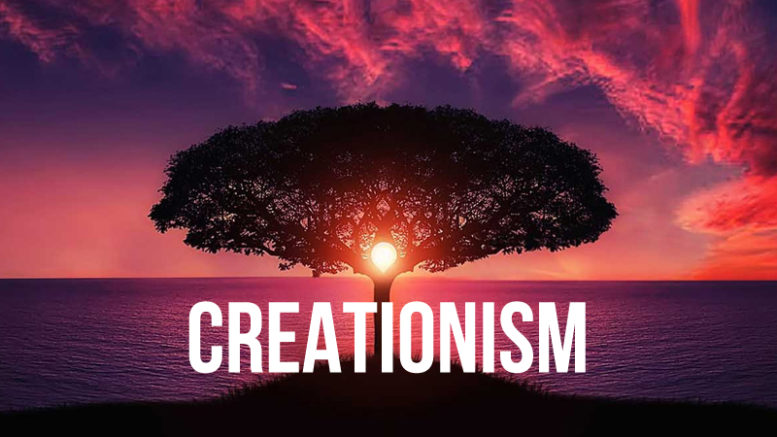Creationism has been one of the Virginia Christian Alliance’s core categories since our founding in 2010. This article builds on our original publication, “Promoting Creationism as Revealed in the Book of Genesis in Six 24-Hour Days”, and continues that mission in light of Earth Day 2025. We welcome your thoughts—please share your comments below!
Introduction: Worshiping the Creator in a Culture That Glorifies the Earth
Worshipping the Creator is central to the Christian worldview. Yet since its establishment in 1970, Earth Day has become a global celebration that often shifts from honoring the Creator to glorifying the creation. Many modern observances now echo the very spiritual confusion warned of in Romans 1:25:
“They exchanged the truth about God for a lie and worshiped and served the creature rather than the Creator…”
This presents a dangerous distortion. Christians must clarify the difference between caring for creation and worshiping it. The call of Earth Day must not supersede our call to worship the Creator of heaven and earth (Genesis 1:1)
From Stewardship to Spiritual Substitution: Worshiping the Creator vs. Honoring the Earth
In biblical creationism, we affirm that the earth is not a god to be honored, but a creation to be managed under man’s dominion—as stewards, not slaves (Genesis 1:26-28). But many Earth Day observances now blur that line. For example, university groups like the Pagan Alliance have conducted rituals to “honor Mother Earth” during Earth Day celebrations. In such ceremonies, the earth is no longer viewed as a gift from God—but as a divine presence.
This is not an environmental concern—it is modern-day idolatry in green packaging.
In 2025, the Vatican again amplified its “Season of Creation” campaign, citing themes such as “peace with creation” and linking it to Isaiah 32. While Scripture calls for peace and care, conflating environmental action with spiritual salvation is problematic. The biblical mandate is not to make peace with creation as if it were an offended partner, but to honor the Creator who created and rules over it (Colossians 1:16). At its worst, this messaging can subtly suggest that creation itself is sacred, blurring the lines between stewardship and idolatry.
What the Bible Really Says About the Earth and Worshiping the Creator
God’s Word is clear: the earth is the Lord’s (Psalm 24:1), and it reflects His glory (Psalm 19:1). We are commanded to care for it (Genesis 2:15), not to worship it. The creation account in Genesis 1 details how God brought all things into existence in six literal 24-hour days—each step ordered, purposeful, and good.
To replace the Creator with creation is a direct reversal of this divine order. Earth Day, when taken beyond awareness and into reverence, becomes a spiritual counterfeit—substituting divine truth with naturalistic or pagan philosophies.
Earth Day 2025: Human Power or Worshiping the Creator?
The official 2025 theme of Earth Day is “Our Power, Our Planet™,” a global push by EarthDay.org to triple renewable energy generation by 2030. While cleaner energy and innovation are not inherently bad, their framing reveals a godless gospel of human power. The movement declares, “We have the technology to meet our global energy needs, ” proclaiming this transition as a “humanitarian revolution.” Yet there is no mention of the One who created the sun, wind, and water. Rather than humble gratitude, the tone is one of human sovereignty over the earth—ironically echoing Babel rather than Eden (Genesis 11 vs. Genesis 2).
As Christians, we must be alert to this subtle shift: from depending on God to depending on man, from worshiping the Creator to glorifying our own ability to “save the planet.” When “renewables” become redemptive, and mankind is portrayed as the redeemer, Earth Day crosses the line from helpful to heretical.
Creation Care, Not Creation Worship: Worshiping the Creator Through Stewardship
Christians are not called to destroy the earth, but neither are we called to elevate it above its rightful place. Environmental stewardship, when rooted in Scripture, is honorable. We should reduce waste, tend the soil, plant trees, and preserve beauty—not because the Earth is divine, but because God owns it and entrusted it to us.
Let us teach our children that recycling isn’t redemptive—Christ is. Let us remind our communities that the world is not our mother—God is our Father (Isaiah 64:8).
Conclusion: Worshiping the Creator, Not the Creation
The message of Earth Day 2025—”Our Power, Our Planet”—rings hollow without acknowledging God’s Power, God’s Planet. The earth is not ours to save. It is God’s to redeem. It was cursed through sin (Genesis 3), flooded in judgment (Genesis 6–9), and will one day be renewed by fire (2 Peter 3:10-13)—not by wind farms and solar panels, but by the power of Christ.
As followers of Jesus, let us lead the way in rightly ordered stewardship—not by joining the global chorus of creation worship, but by singing the praises of the Creator. Earth Day offers an opportunity to not blend in but stand out.
Key Scriptures for Further Study
- Genesis 1:1
- Romans 1:25
- Psalm 24:1
- Colossians 1:16
- Exodus 20:11
- Revelation 4:11
- Isaiah 64:8
- 2 Peter 3:10-13
Recommended Creation Ministries for Biblical Creation Teaching
These trusted ministries provide in-depth teaching, research, and resources that defend a young earth, six-day biblical creation as recorded in Genesis.






This reads like it was written by an AI ChatBot. I used several AI detection tools, which agreed.
The article is all over the place and misses what Earth Day is about from a Biblical perspective.
Earth Day and the entire renewable energy-climate change ideology goes against God.
God created man in his image. God created the earth and everything on, in and around it. God created the earth for man to use, care for, enjoy and dominate for man’s benefit. That includes his created fossil fuels for heat and energy, animals for meat and sustenance, modern food production to feed people, and everything that has enabled man to go forth and multiply across the earth.
Radical environmentalism as celebrated on Earth Day, denies God and, worse commits murder in the eyes of God. Exodus 20:13.
It is not about caring for people or the planet, or anything remotely close to God’s truth or scientific reality. It sets out to murder people to reduce the population. It intentionally harms the most vulnerable and targets the poorest and most disenfranchised people on the planet.
It is the opposite of God’s teachings or loving our neighbor.
Cornwall Alliance would be another valuable reference.
Hi Roy,
Thanks for the feedback. Yes, we use AI tools for development along with other editing platforms to assist in drafting and organizing content. However, those are finalized via editing and aligned with our position paper from 2010. We always craft content that puts God first and glorifies God in all we do. I am sending an email to you in hopes that we can correspond directly on any particular items in the article. Rereading it, the article puts God first and warns readers that Earth Day worships earth, not our Creator. I am familiar with Cornwall–Resisting the Green Dragon DVD series, the Declaration.